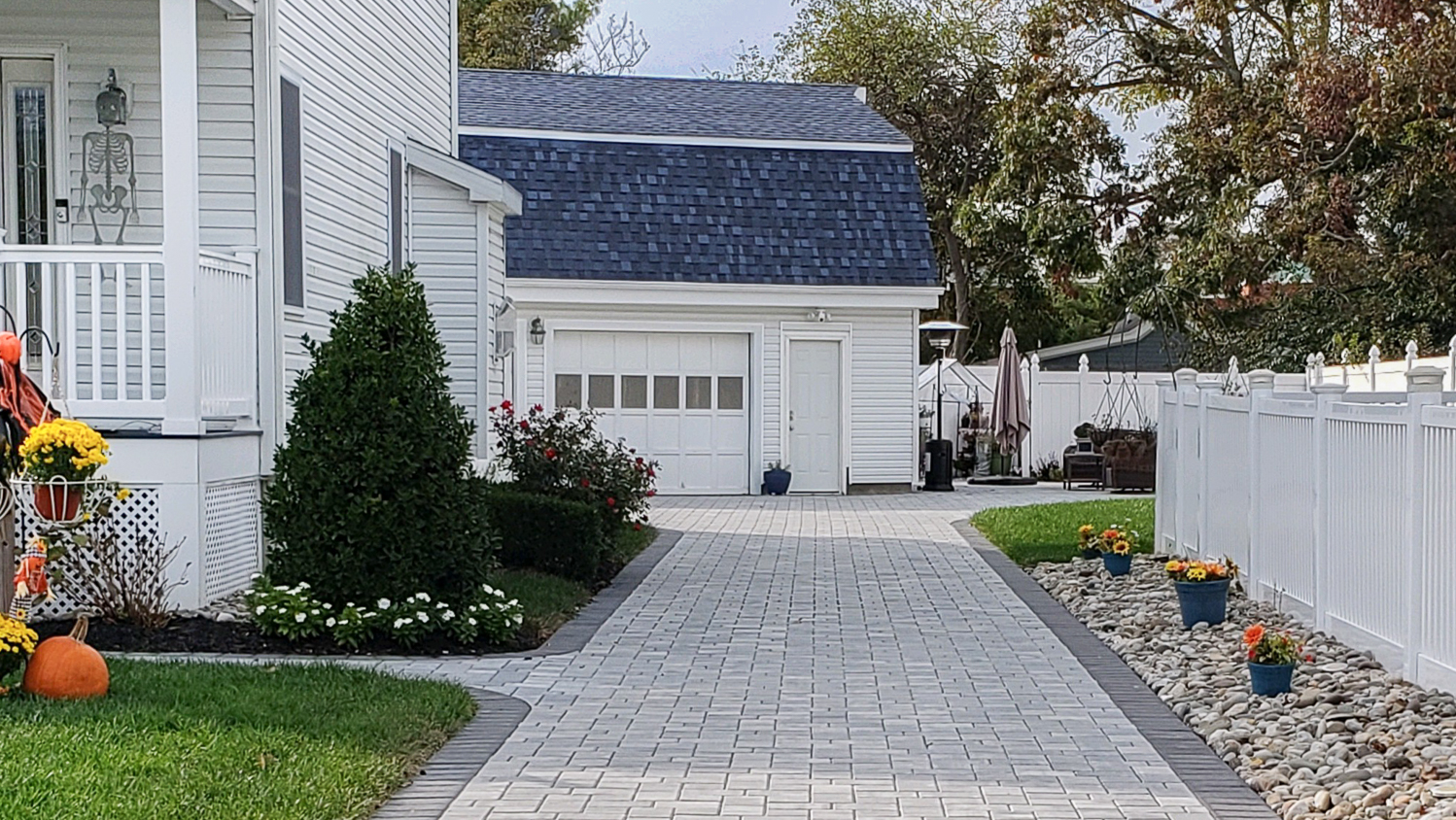
Discover the average paver driveway cost, including price ranges, key cost factors, and tips to help you budget for your driveway project.
Time to roll up the green carpet with some DIY hacks


Moss can be a magical addition to one’s fairy garden, but when it starts to grow in places you don’t want, it can quickly turn into a major problem. If your driveway has enough moss to make your home resemble a fairytale forest—and you’re after a crisp, clean, and modern look—then it might be time to tackle the moss once and for all. Thankfully, there are many ways you can remove moss from your driveway, so stay tuned to learn how to get rid of moss on driveways.
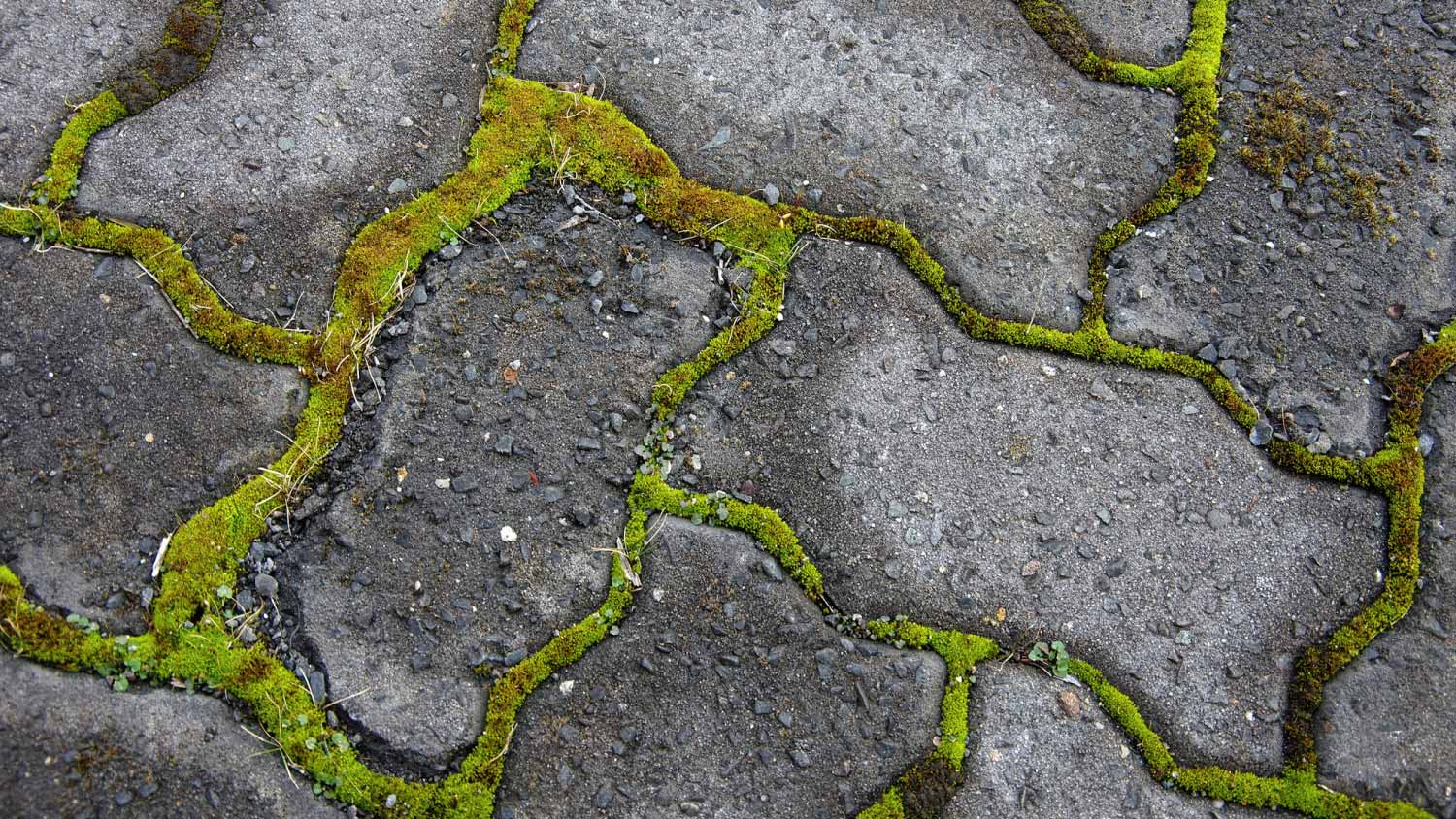
Shade and moisture can both contribute to an influx of moss and algae on your driveway, but they’re by no means the only reasons behind moss on driveways. Here are some of the most common reasons why your driveway has turned into a mossy jungle:
Your driveway has poor drainage, allowing for standing water and moisture buildup.
Large, shady trees keep your driveway moist.
You park your vehicles in one spot for long periods, preventing moisture from evaporating.
You have a brick driveway or paver driveway, which holds onto moisture more easily than asphalt.
Your concrete driveway needs more maintenance, such as dirt removal and sealants.
Moss removal costs depend on the method of removal. If you choose to use a pressure washer, the cost to pressure wash a driveway ranges from $100 to $350, depending on the surface size and type. Other methods, like topical mold, mildew, and moss cleaner, cost around $15 to $30 per bottle.
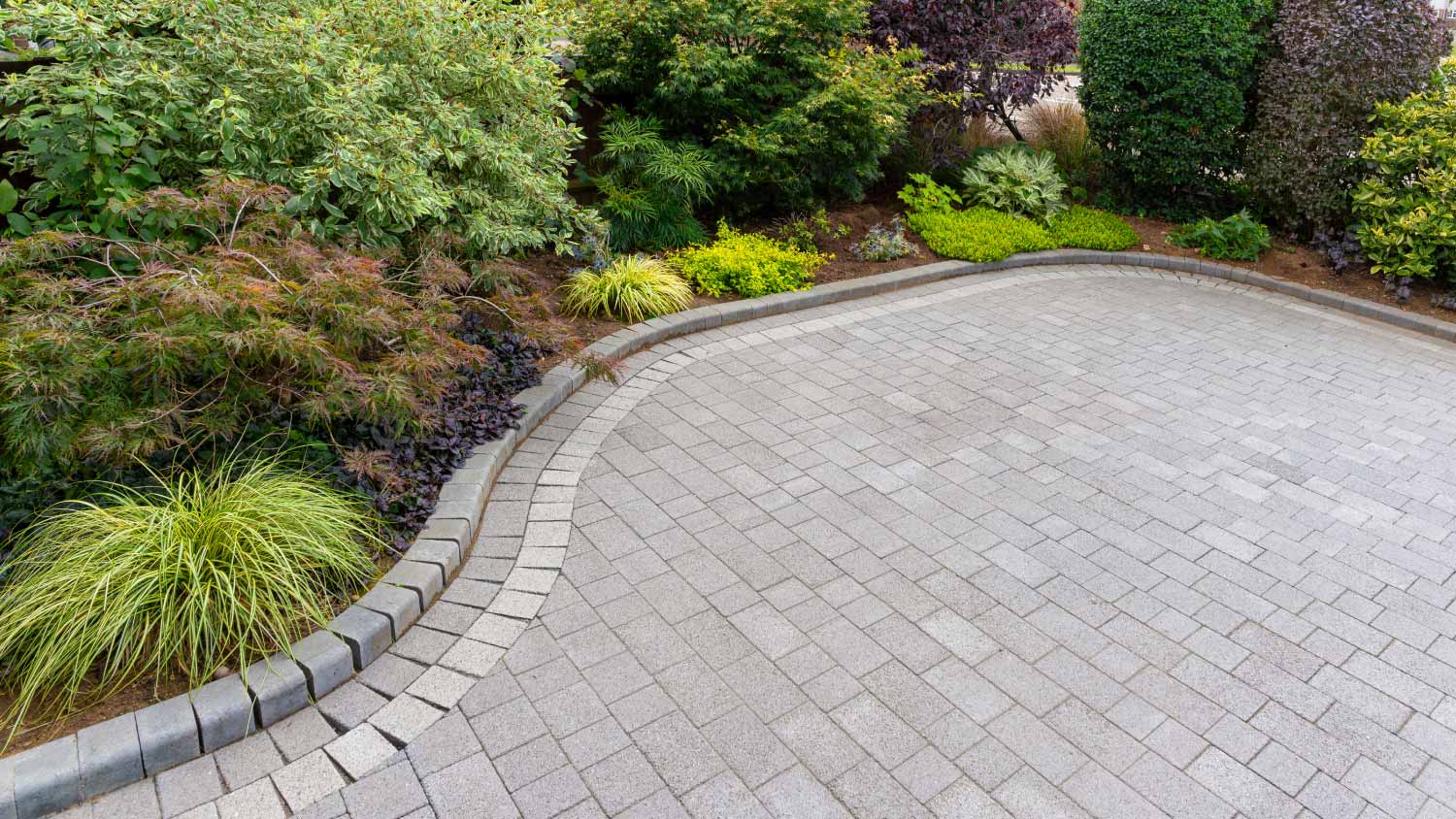
Before you get started, you’ll first want to prepare and clean your driveway so it’s ready for any treatments. Sweep away dirt and other debris using a stiff broom and scrub brush for tight areas. If you plan on using harsher solutions like bleach or a commercial moss killer, cover beloved plants using plastic drop cloths.
When it comes to removing moss on driveways, you have options. We’ve rounded up several methods for removing moss and the steps you need to take to have your driveway moss-free.
As the easiest—not to mention, potentially free—method for getting rid of moss, increasing sunlight to mossy sections of your driveway may be the only step you’ll need to take. To do this, follow these steps:
Stay on top of trimming dense trees, shrubs, and plants around your landscape.
Keep up with lawn services to avoid casting extra shade around the perimeter of your driveway.
Don’t leave cars parked in one spot for too long. Move your car around to increase sunlight in shaded areas.
Like most living things, boiling water can cause some real damage to moss. This is another inexpensive way to manage moss, but if you have a large amount of the green stuff, you might want to choose a less time-consuming method. Still, in small patches, boiling a pot of water and pouring it over the moss can effectively obliterate pesky moss without causing harm to plants and animals. To use boiling water, all you have to do is:
Boil water in a pot.
Pour the water over the moss, being careful not to pour over the surrounding landscaping.
Give the moss a scrub using a deck brush or stiff bristle broom.
Baking soda can also help eradicate moss on driveways. Thanks to its high pH level, baking soda makes it hard for moss to grow—but it might not be as effective as the other options. You can either use a spray by combining baking soda with water, or you can sprinkle the baking soda straight onto mossy surfaces to get rid of the moss.
Here’s how to create a baking soda spray:
Combine one teaspoon of baking soda and two cups of warm water into a spray bottle.
Give it a shake until the baking soda fully dissolves in the water.
Spray the mixture onto any moss.
Leave the baking soda to dry overnight.
The next day, use a brush or broom to scrub the moss and baking soda away.
To use baking soda powder, follow these steps:
Apply a generous amount of baking soda over the moss.
Let it sit for one to two days.
Sweep it away using a broom.
If baking soda doesn't do the job, your next natural and powerful option is to bring out the vinegar. Acetic acid, an ingredient found in vinegar, works to stop moss in its tracks—and the best part is that you might already have vinegar on hand and can skip the trip to the grocery store. Here’s what you need to know to effectively use vinegar to kill moss:
With a clean spray bottle on hand, mix an equal amount of water and vinegar.
Spray the solution onto any mossy spots.
Leave it on your driveway for 15 to 20 minutes.
Give your driveway a good hose down.
Wait several hours for the vinegar to work its magic.
Brush the moss off the driveway with a deck brush or stiff bristle broom.
Repeat this process several times for extreme moss control.
While a pressure washer shouldn't be used on cobblestone driveways and can harm pavers, bricks, and concrete if used incorrectly, some driveways can handle a pressure washer. Using one on your driveway to remove moss can be a fast way to not only remove moss but also make your driveway look as good as new. Here’s how to pressure wash a driveway:
Follow the manufacturer’s instructions for your particular pressure washer.
Keep the nozzle anywhere from eight to 18 inches away from your driveway at all times.
Use sweeping motions to evenly clean your driveway.
Rinse the driveway with water.
Apply a sealer (optional)
If none of the natural options do the job, then a bleach moss killer solution is another way to get rid of moss on driveways. However, it’s important to keep in mind that bleach can harm you, children, pets, and the environment, making it important to carefully use it to treat moss. Before following these steps, make sure all pets and children are kept away and you’re wearing PPE, like rubber gloves and protective eyewear. With this in mind, follow these steps:
Combine equal parts bleach and water into a spray bottle.
Spray the solution onto the moss, being careful not to get it on your landscaping, as too much can drain over to your lawn.
Let the solution sit for 15 minutes.
Scrub the moss away using a brush or broom.
Rinse the solution down the driveway using a hose.
If push comes to shove, and your mossy driveway still won’t disappear, then it doesn’t get much stronger than commercial moss killers. Each moss killer has its own set of instructions for removing moss, and some are less harmful to the environment than others, so follow the manufacturer’s instructions to use a commercial solution.
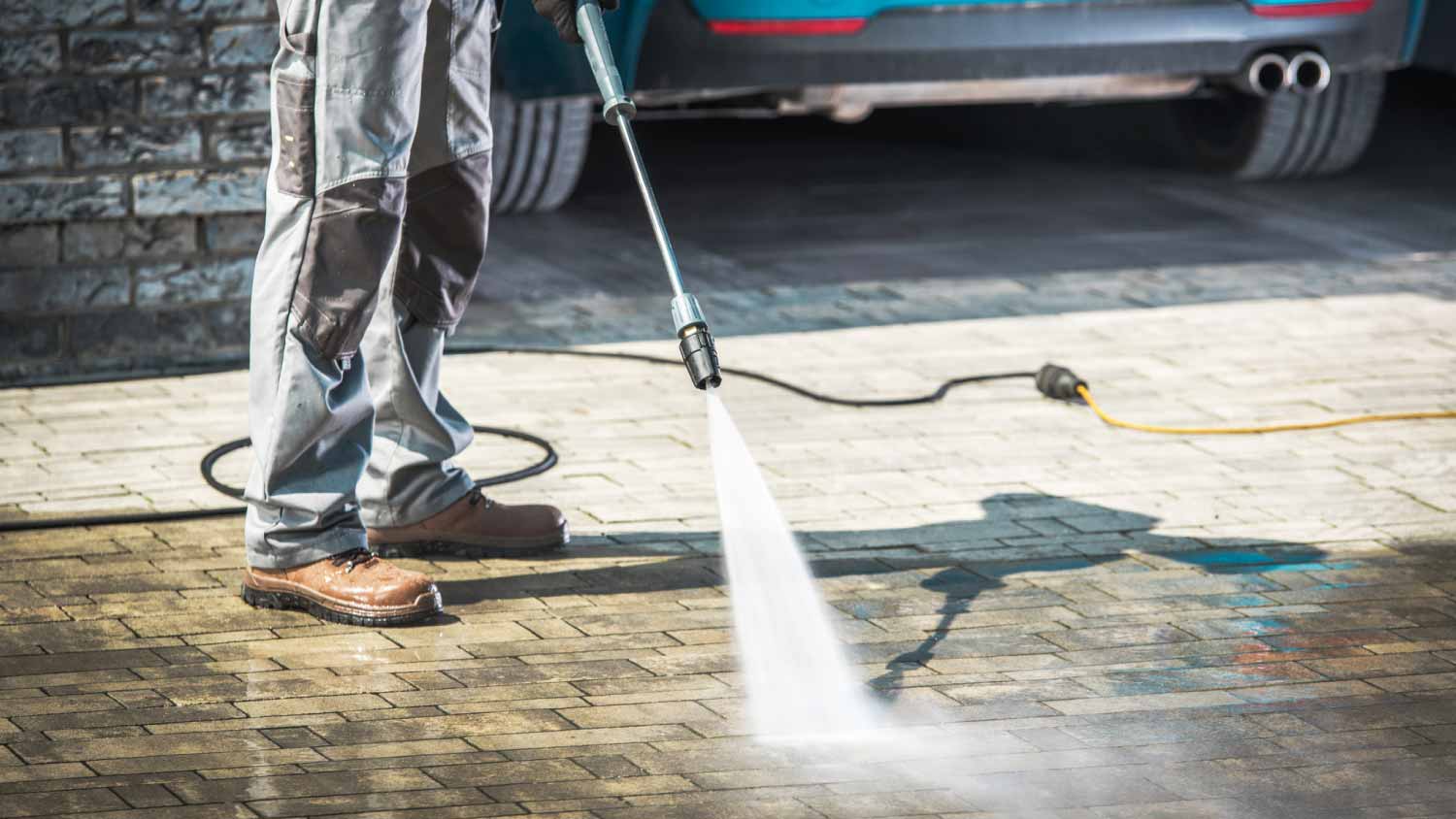
Even when you’re armed with powerful methods for driveway moss removal, the best method is no method. Here’s how to prevent moss from growing on your driveway in the first place:
Wash your driveway at least twice a year.
Stay on top of local tree trimming services to maximize sunlight on your driveway.
Invest in regular lawn care services to keep grass shade low.
Regularly sweep your driveway to prevent dirt from accumulating and contributing to moss growth.
Replace or repair faulty irrigation systems to prevent excess moisture.
Rotate your parked cars to allow sunlight to reach underneath them.
Choose easier-to-maintain asphalt for your driveway, which is more moss-resistant than other driveway materials.
Hire a driveway repair company near you to repair or replace driveway a cracked or sunken driveway.
Remove new moss as it appears to keep it from growing fast.
Getting rid of moss on a driveway is an easy project to DIY. You may already have ingredients available just sitting in your kitchen.
However, some methods do require a little bit of elbow grease—especially if you have a severe case of moss or don’t want to scrub your driveway, apply solutions several times, and then scrub again. In this case, you may be better off working with a weed service near you to tackle the job. Weed removal services cost anywhere between $50 and $150 per service on average, depending on the size of your driveway.
From average costs to expert advice, get all the answers you need to get your job done.

Discover the average paver driveway cost, including price ranges, key cost factors, and tips to help you budget for your driveway project.

Do you need more parking for your business or home? Here's everything you need to know about the cost to pave a parking lot.

Calculate the cost of installing a new asphalt driveway based on dimensions, depth, finishes, and other custom driveway details.

Learning how to remove driveway stains depends on the type of stain, your driveway, and your abilities. Luckily, these 8 methods are pretty simple. Learn more.
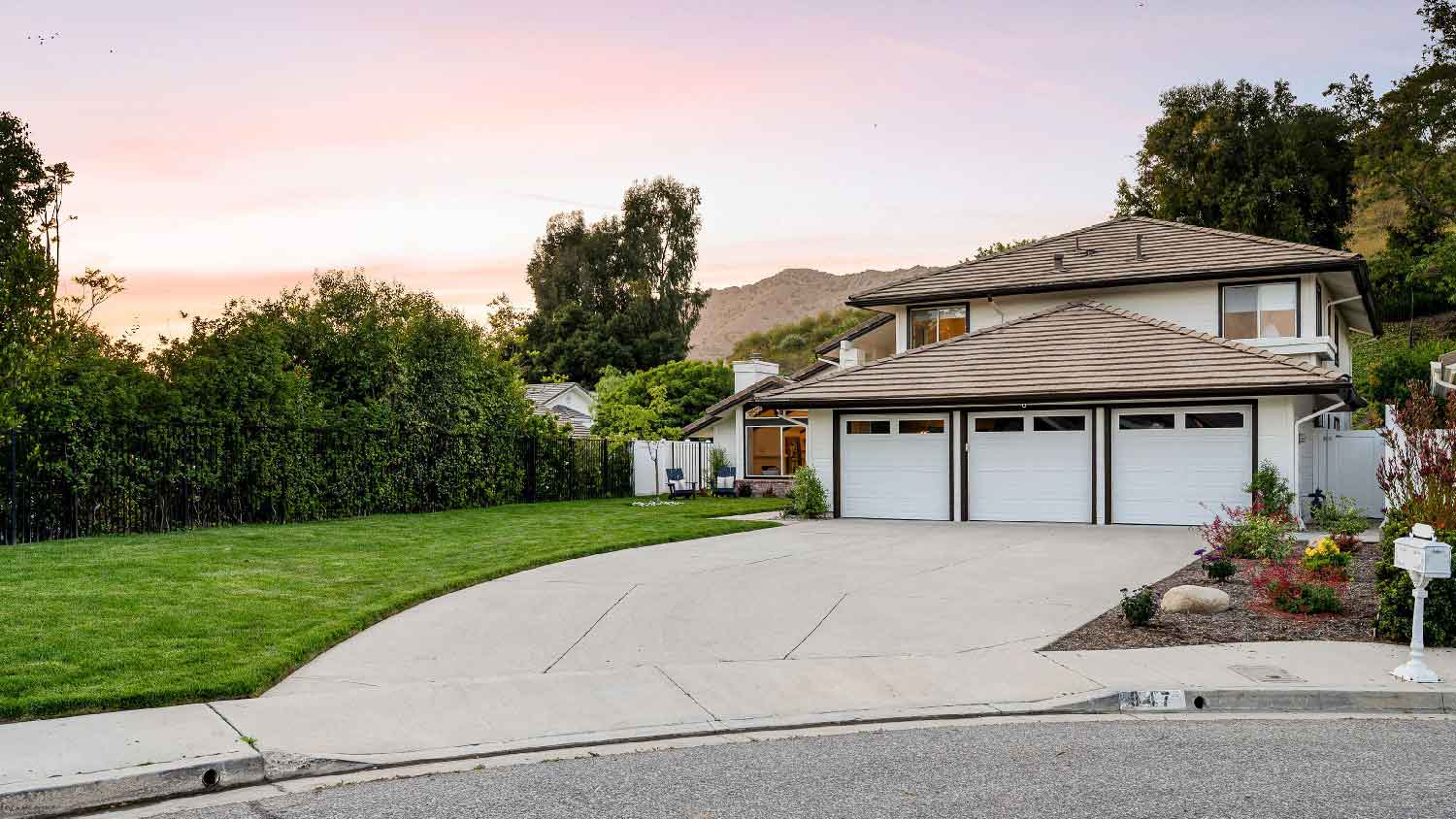
Here are some driveway paving alternatives if you'd like a cheaper, more durable, or more aesthetically pleasing option than a paved concrete driveway.

Adding a new asphalt driveway to your home can boost its overall appearance and give homeowners a nice ROI down the line. But how long do asphalt driveways last, and what can you do to maximize their lifespans? Read this guide to find out.